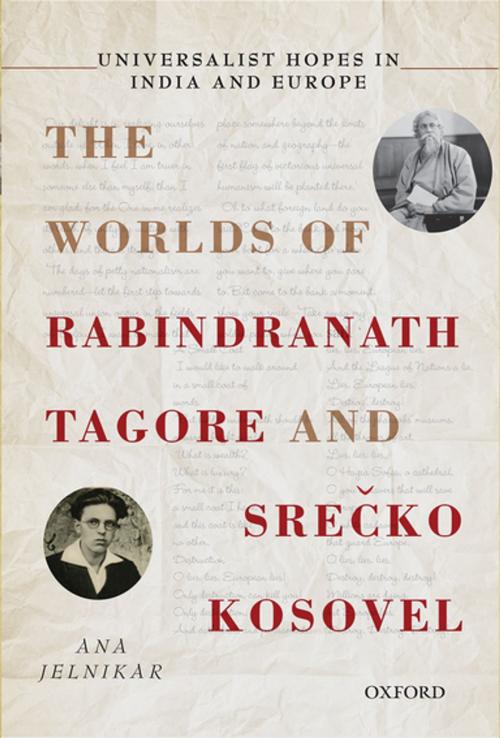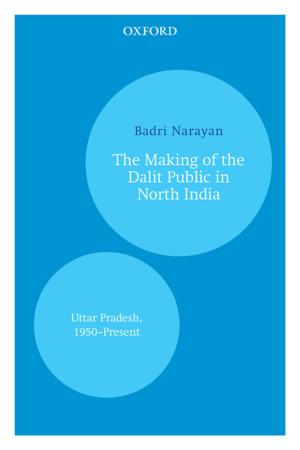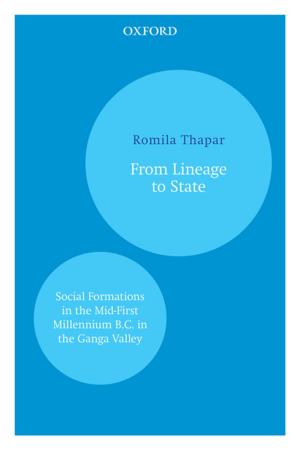Universalist Hopes in India and Europe
The Worlds of Rabindranath Tagore and Srečko Kosovel
Fiction & Literature, Literary Theory & Criticism, Poetry History & Criticism| Author: | Ana Jelnikar | ISBN: | 9780199089550 |
| Publisher: | OUP India | Publication: | February 18, 2016 |
| Imprint: | OUP India | Language: | English |
| Author: | Ana Jelnikar |
| ISBN: | 9780199089550 |
| Publisher: | OUP India |
| Publication: | February 18, 2016 |
| Imprint: | OUP India |
| Language: | English |
In 1913, Rabindranath Tagore received the Nobel Prize in Literature. World famous overnight, he was translated into numerous languages. Meanwhile, in Slovenia, a young, still anonymous poet felt strongly drawn to the newly available works of the Indian bard. This young man was Srečko Kosovel, who is today hailed as Slovenia’s leading avant-garde poet of the interwar period. But what could Kosovel, then barely out of his teens, have in common with a figure of Tagore’s stature? Deeply affected by Italy’s conquest of parts of Slovene-populated territory, Kosovel was able to identify with Tagore and relate to the historical predicament of colonial subjugation. Despite coming from different backgrounds, they were kindred spirits a dynamic, creative ideal of universalism lay at the core of their concerns. As a ‘true’ universalist, in the sense of feeling empathy with the less fortunate, it was more in the spirit of equality that Kosovel approached Tagore. This volume is the first comparative study of the writings of these two poets who lived worlds apart but spoke in strikingly similar voices. It explores the links between India and East-Central Europe in the early decades of the twentieth century and gives expression to responses from within Europe that have largely been overlooked in postcolonial and cultural studies.
In 1913, Rabindranath Tagore received the Nobel Prize in Literature. World famous overnight, he was translated into numerous languages. Meanwhile, in Slovenia, a young, still anonymous poet felt strongly drawn to the newly available works of the Indian bard. This young man was Srečko Kosovel, who is today hailed as Slovenia’s leading avant-garde poet of the interwar period. But what could Kosovel, then barely out of his teens, have in common with a figure of Tagore’s stature? Deeply affected by Italy’s conquest of parts of Slovene-populated territory, Kosovel was able to identify with Tagore and relate to the historical predicament of colonial subjugation. Despite coming from different backgrounds, they were kindred spirits a dynamic, creative ideal of universalism lay at the core of their concerns. As a ‘true’ universalist, in the sense of feeling empathy with the less fortunate, it was more in the spirit of equality that Kosovel approached Tagore. This volume is the first comparative study of the writings of these two poets who lived worlds apart but spoke in strikingly similar voices. It explores the links between India and East-Central Europe in the early decades of the twentieth century and gives expression to responses from within Europe that have largely been overlooked in postcolonial and cultural studies.















